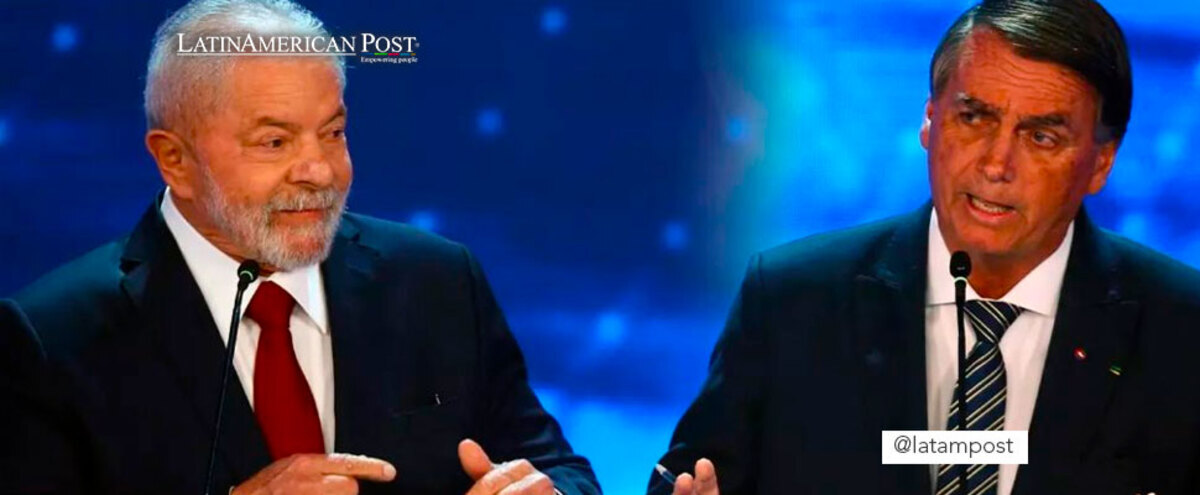Giorgia Meloni's recent victory in Italy and the elections in Brazil show that world politics today is torn between protectionism and integration on a global scale .

Photo: AFP
LatinAmerican Post | Santiago Gómez Hernández
Listen to this article
Leer en español: Elecciones Brasil: globalismo vs ultranacionalismo
Lula da Silva against Jair Bolsonaro, this is how the second round of the presidential elections in Brazil will be held. A result in the first round that does not surprise anyone, in a highly polarized political context and in which a third candidacy with serious aspirations to go to the next round never materialized.
The only news that was expected was if Lula would win in the second round (he did not pass, he only got 48.33%); and if Bolsonaro would do poorly as in the polls (he did not pass, he reached 43.28%). What did happen was that, finally, Simone Tebet (4.17% of votes) surpassed Ciro Gomes (3.05%) in third place and that now they will be able to play an important role depending on where the electoral balance leans on the second round. If Lula manages to win all of Tebet's or Gomes' votes (in addition to keeping his own), victory will be assured.
The Brazilian presidency will again be disputed between the candidate of the Workers' Party and Bolsonaro (as in 2018); between a conservative candidate and another socialist; between left and right. But it is also another battle between globalism and ultranationalism. That same battle that we saw a few weeks ago in Italy and that gave victory to the right-wing bloc headed by Fratelli d'Italia with Giorgia Meloni. A movement that rejects mass immigration, political and economic integration with Europe, liberal progressive values and even the fight against climate change.
Another clear example of this movement against liberal integration was Brexit. Driven again by nationalist and conservative groups, they succeeded in excluding the UK from the European Union, demanding more freedom for national policies and fewer community policies.
Read also: The “Family Code” that allows same-sex marriage in Cuba
Precisely, several of these measures are also shared by other world leaders such as Donald Trump (United States), and precisely, Jair Bolsonaro. Many classify them as ultra-nationalists, who are against integration. It is true that they also share traditional conservative values and share several conspiracy theories: whether it is the rejection of climate change or vaccines against Covid.
On the other side of the political “ring”, there is Lula da Silva and integrationism. This liberal ideology that today he shares with several socialist or leftist politicians is classified as "globalism." It seeks a general integration between countries and cooperation for global challenges such as the environment and human rights.
Lula himself was one of the most important politicians to strengthen political integration in Latin America when he was in his first term between 2003 and 2010. He was also one of the founders of the BRICS group, an international cooperation group founded by the powers emerging countries far from the West: Brazil, Russia, India, China and South Africa. Today it is a group that has been forgotten and has made little progress in its projects. The possible arrival of Lula could revive this organization, although it will be difficult to foresee the future of Russia and the availability to deepen the integration between the other leaders.
Fears on both sides
Moderate groups see ultra-nationalist projects as a setback for democracies and cooperation. Due to the challenges that are seen in the fight against climate change and human rights, the lack of integration can make it difficult to work to improve them.
On the other hand, the nationalists see in the globalists, the plans to end the nation-state, the imposition of norms coming from bureaucrats and, even, the reduction of rights and freedoms typical of conservatives, such as religious freedom.
Contrary to the Latin American wish?
While in Europe and the United States the rejection of regional and international integration projects increases: case like the European Union, NATO, etc.; in Latin America, it continues to be the desire of many.
According to a survey published by the Inter-American Development Bank in its study: "The Latin American voice: perceptions on regional integration and trade: February 2022"; 71% of Latin Americans agree with greater integration with other Latin American countries. From time to time new groups and projects are created: Mercosur, Unasur, Prosur, Andean Community, Pacific Alliance, ALBA, etc.
In the survey, only 47% of Latinos believe that their country has made progress in greater regional integration. Only Chile, El Salvador, the Dominican Republic, Panama, Mexico, Paraguay, Uruguay and Peru have a perception greater than 50%. While in Venezuela, the feeling is 24%.
The Latin American irony is that while the region keeps a language (or two very similar ones) and a close culture; with widespread problems (poverty, climate change, migration crisis, etc.); and a desire for greater integration, the countries have not been able to achieve a meaningful union that positively affects the lives of citizens.




